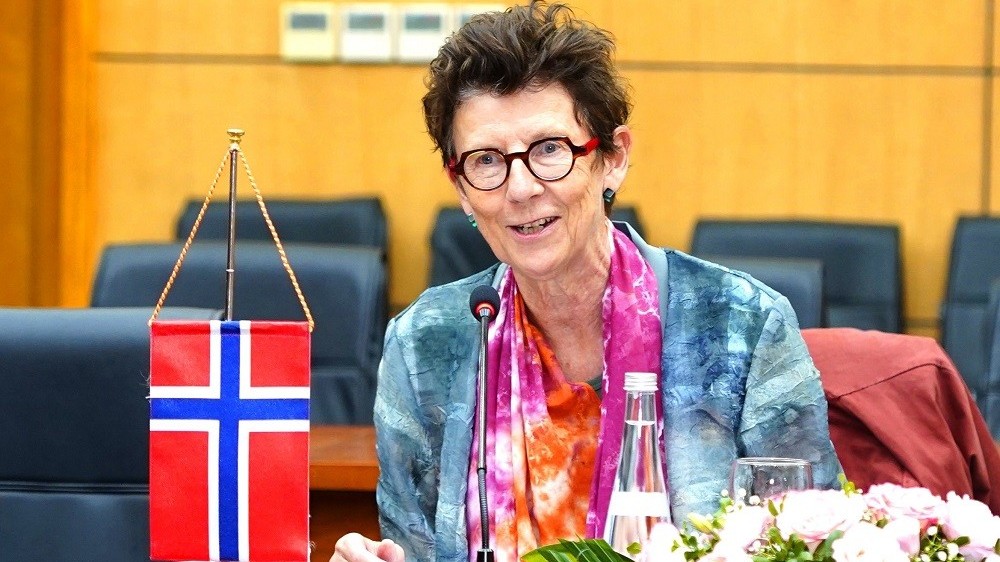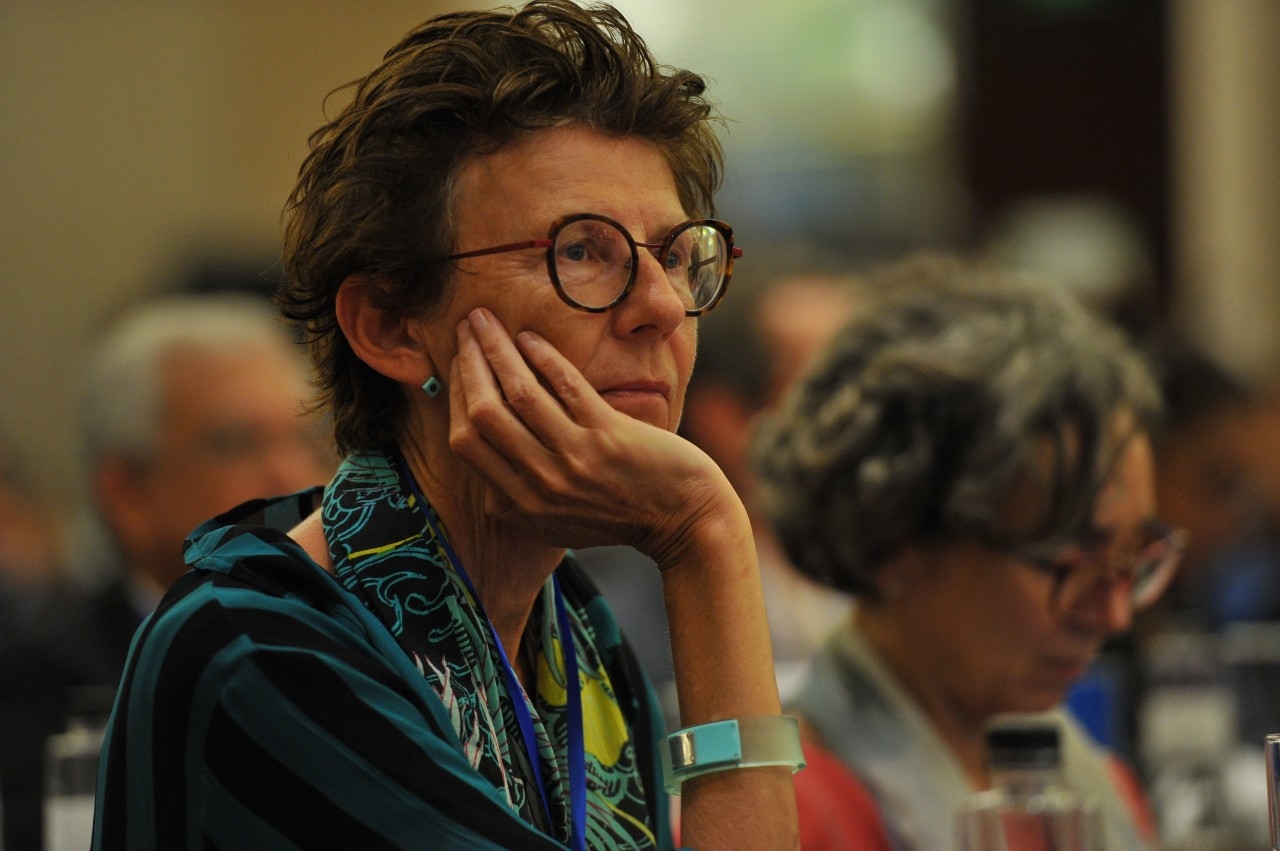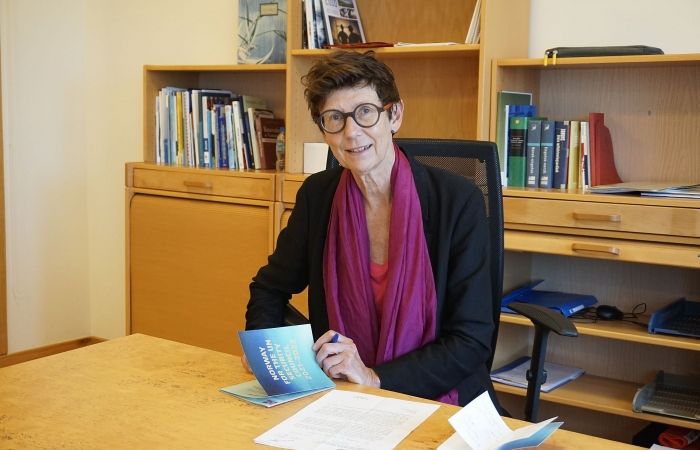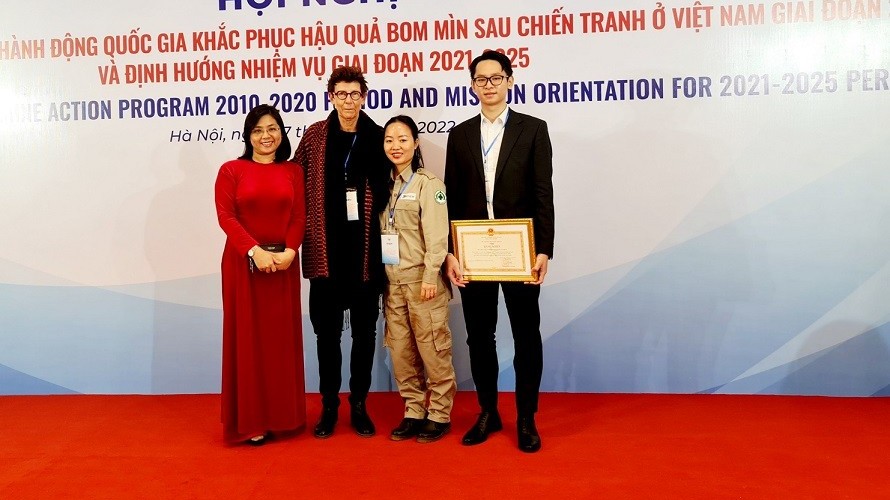
Vietnam is increasingly more open about LGBTI rights: Norwegian Ambassador
Latest
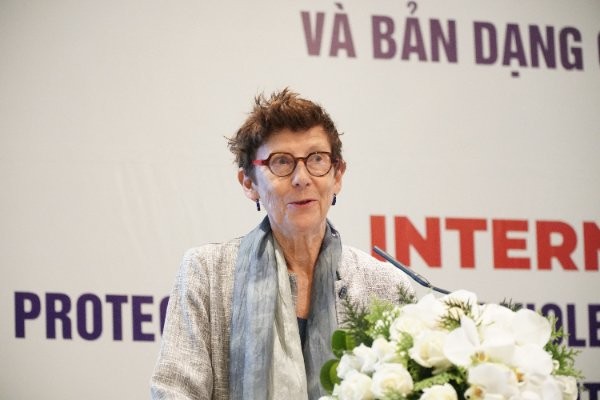 |
| Ambassador of Norway to Vietnam Grete Lochen highly appreciated the efforts of the Vietnamese Government in assuring the rights of the LGBTI community. |
Talking with The World & Viet Nam Report on the sidelines of the "International Workshop on Protecting Against Violence and Discrimination Based on Sexual Orientation and Gender Identity: International and Vietnam’s Experiences" in Hanoi on May 27, Ambassador of Norway to Vietnam Grete Lochen highly appreciated the efforts of Vietnamese Government in assuring the rights of the LGBTI community and shared her practical experience.
What do you think about the progress of Vietnam in assuring the rights of the LGBTI community?
In the Asian context, Vietnam has made more progress and become more open. We have seen more acceptance and a diverse and young LGBTI community which is proud of itself. You have also taken important legal steps towards protecting the human rights of LGBTI persons.
The Marriage and Family Law was revised in 2014 to remove the explicit prohibition on same-sex marriage. Importantly, the amended 2015 Civil Code (art. 37), which took effect in January 2017, allows gender transformation in Vietnam.
As the Norwegian Ambassador and at a personal level, being a lesbian and belonging to the LGBTI community, I have experienced progress myself.
Having a long diplomatic career, being posted to many countries in Asia, Vietnam has been the only country granting my spouse a diplomatic visa.
In other countries, she has just got a work permit as my servant or personal assistant, the only way for her to join me. It does not give you a feeling of pride or respect but only one of vulnerability and being marginalized. It has been such a relief that this has not been the case in Vietnam.
This is a good start, although there still remains much to be done. I personally think that Vietnam can become a role model of inclusion for other countries in the region.
To do so, Vietnam needs to do a lot of homework to improve its legal framework, for example, passing the Law on Gender Reaffirmation, and to raise awareness among policy-makers and public members about the topic.
What has Norway done to support this effort of the Vietnamese Government?
I know the LGBTI community in Vietnam quite well. They deserve and need our support and respect.
Many of them have very painful stories to tell. There is severe discrimination and sexual harassment at the workplace, in school, within families and access to health services.
The COVID-19 pandemic has accelerated this trend. The LGBTI community was hard-hit by the pandemic, putting thousands of LGBTI persons in a very vulnerable and lonely situation, not just in Vietnam but globally.
It is time to acknowledge the specific need to protect and include sexual and gender minorities in our COVID-19 response and our efforts to build back better.
I am pleased to see several Vietnamese ministries and government institutions being more interested in learning from other countries’ experiences in ensuring the rights of the LGBTI+ community in Vietnam and protecting them from discrimination and harassment because of their sexual orientation and gender identity.
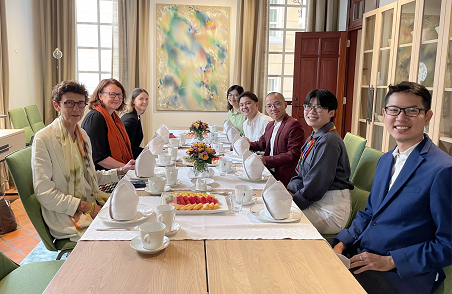 |
| Norwegian Ambassador Grete Lochen, Norwegian State Secretary Bjørg Sandkjær met representatives of the LGBTI community in Vietnam in May 2022. |
Norway is happy to support and share its experiences, such as in the recent workshop organized by the Ministry of Foreign Affairs and UNDP.
I have also recently been to an event at the Ho Chi Minh National Academy of Politics to share Norway’s stories about how we addressed this issue and built an inclusive society where everyone’s voice is heard and respected.
We also address the situation of the LGBTI community in bilateral and multilateral meetings, recently during the visit of the Norwegian State Secretary, Ms. Bjørg Sandkjær in May.
Together with other diplomatic missions in Hanoi, we are giving advice and input to important Vietnamese draft legislation such as the Gender Affirmation Law. It is encouraging to see positive responses from the Ministry of Health although important work still remains before the law is passed by the National Assembly.
Norway and Vietnam are both staunch supporters of the UN Sustainable Development Goals and the principle of leaving no one behind.
It is a global priority of Norway to increase focus on equal rights, including the issue of discrimination based on sexual orientation and gender identity. For LGBTI people, it is to live without stigma, shame and discrimination and not being invisible anymore.
The embassy is therefore giving support to the LGBTI community in Vietnam, such as the yearly PRIDE events, as well as working with the UN in Vietnam and the government agencies by sharing knowledge, raising awareness and enabling constructive dialogue among all stakeholders to make sure that the LGBTI community is not left behind.
What is Norway’s experience in addressing discrimination and violence based on sexuality orientation and gender identity?
Norway has fortunately come a long way, both in terms of legislation (decriminalization, gender-neutral Marriage Act and anti-discrimination law) as well as changing the public attitude.
I grew up in Norway as a young lesbian when same-sex acts were still criminalized. This year it is 50 years since homosexuality was decriminalized in 1972 in Norway.
Homosexuality was seen as a mental illness until 1977. It was a pervasive culture of silence and shame for many of us. It is encouraging to see a substantial change in social acceptance now. These achievements are due to the hard and courageous work of LGBTI organizations themselves and the government passing inclusive legislation.
As a public servant, I think it is the governments’ responsibility to protect their own population, not just the majority but also its minorities. Governments must actively contribute to preventing discrimination, harassment and even violence.
Likewise, equally important policymakers should not rely on intuitive thinking when designing policies and responses that will impact the LGBTI community. Only effective and meaningful involvement and consultation with the concerned populations, the LGBTI community itself, will create responses with a positive impact.
This is the approach of the Norwegian government. Norway has played an active role as an advocate for the rights of LGBTI people, both in the UN Human Rights Council, the UN General Assembly and in bilateral dialogues.
However, social discrimination, harassment and hate crime still exist in Norway. Recent surveys show that LGBTI people are still experiencing discrimination, harassment and are more vulnerable regarding mental health. Meanwhile, transgender people, in particular, report severe challenges in their everyday lives. There is a higher rate of suicide among LGBTI people.
Shame and fear of prejudice and discrimination still make young LGBTI people drink more alcohol and do more drugs than the heterosexual youth. We still have work to do, particularly in the context of building back after the pandemic. We have to do it together.
Thank you Ambassador!
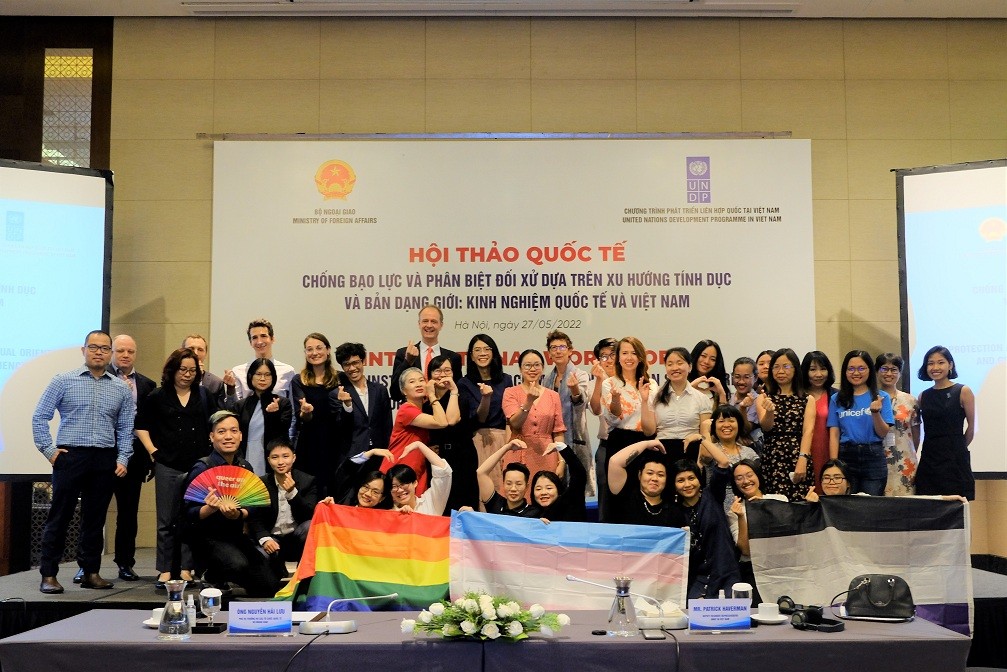 |
| Norwegian Ambassador Grete Lochen, delegates and guests at the 'International Workshop on Protecting Against Violence and Discrimination Based on Sexual Orientation and Gender Identity: International and Vietnam’s Experiences' in Hanoi on May 27. |




